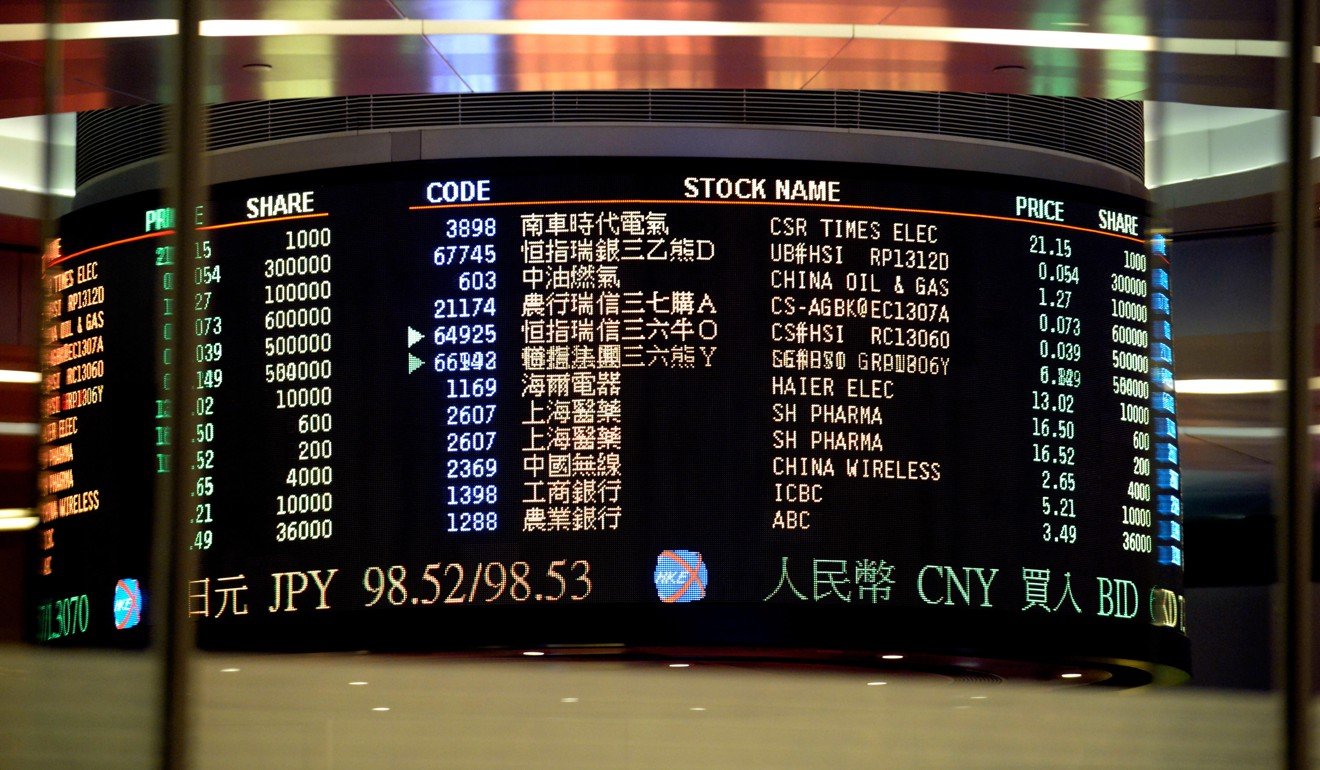
1987, 1997, 2007... 2017? Hong Kong’s curse of unlucky seven
A stock market crash in 87, a property crash in 1997 and the global financial crisis of 2007. The omens don’t bode well, and even if you’re not superstitious, it might be wise to steer clear of Hong Kong real estate
Few in finance have memories of the markets that stretch back 30 years. But those whose recall does extend back to the mid-1980s could be forgiven for feeling a little nervous as Hong Kong enters the second half of 2017. The latter months of years that end in a seven are seldom lucky for investors in Hong Kong assets.
Consider 1987. The October 1987 crash hit stock markets around the world, but Hong Kong was hammered especially hard. On Monday, October 19, the city’s benchmark Hang Seng index fell 11 per cent, a slump that prompted stock exchange chairman Ronald Li to suspend trading for the rest of the week “to protect the investor”.

China’s stock index breakthrough: a most important non-event
Today the crash is possibly best remembered for how Li publically threatened the Hong Kong correspondent of the Sydney Morning Herald with jail for having the temerity to ask questions at a press conference. But many small investors sustained crippling losses. By early December, the stock market had fallen by more than 50 per cent from its October high. Within months Li had been arrested on corruption charges, for which he later went to jail himself.

Watch: How Hong Kong housing has changed in 20 years
Hong Kong’s promising future is still mostly in the future
Prevented by its fixed exchange rate from devaluing its own currency, Hong Kong was forced to make much of the adjustment through its asset markets. Between August 1997 and August 1998, the Hang Seng stock index cratered by 60 per cent. The adjustment in the city’s property market was slower, but even more vicious. From their 1997 high to their eventual 2003 low, residential prices in Hong Kong slumped by 69 per cent, inflicting grievous losses on legions of home-owners.

But at the end of October the rally ran out of steam. Over the next 12 months as the global crisis worsened, the Hang Seng again plunged, losing 65 per cent of its value. The fall in the property market was less severe, but still painful. Between March 2008 and December the same year, Hong Kong home prices lost 23 per cent of their value.
The Hong Kong stock market has never regained its 2007 highs. The same cannot be said of the local property market, where prices have risen more than 180 per cent since their December 2008 low. And it is the Hong Kong property market that is the focus of concern about a new crash in the second half of 2017.

Who learned the lessons of Thai baht crisis: China or Europe?
Certainly the Hong Kong property market looks primed for a renewed crunch. Encouraged by rock-bottom interest rates, in recent years property investors have taken on more and more mortgage debt. In April, outstanding mortgage loans in Hong Kong totalled HK$1.14 trillion, almost three times as much as at the height of the 1997 bubble.
So far, borrowers have not been affected by the four successive increases in US interest rates since December 2015. While short-term US interest rates have risen, Hong Kong dollar interbank rates, to which most mortgage rates are linked, have remained stubbornly low. Today, the one-month Hong Kong dollar interest rate is 0.8 percentage points below the equivalent US dollar rate, holding mortgage service costs down for Hong Kong borrowers.

Why US$50 oil is at the heart of the Saudi-Qatar conflict
That’s going to hurt. Mortgage payments already eat up between a half and two-thirds of disposable household income for typical borrowers. By the end of the year that proportion is likely to exceed 90 per cent for more highly leveraged homebuyers, similar to the level immediately preceding the 1997 property crash.
Alas, it looks as if the curse of seven could strike Hong Kong yet again. ■
Tom Holland is a former SCMP staffer who has been writing about Asian affairs for more than 20 years

